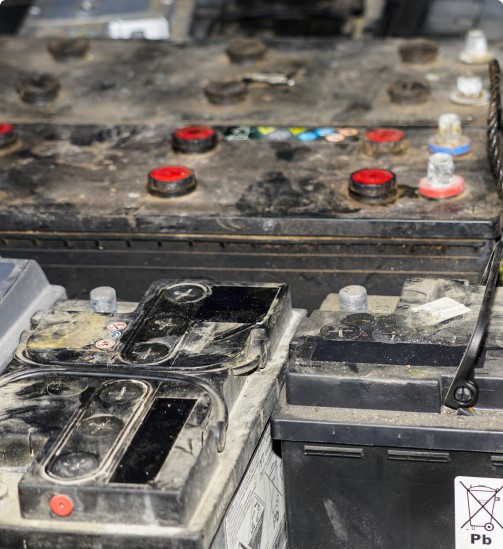1. Where can I find the prices for scrap lead acid batteries?
The prices for scrap lead-acid batteries can vary based on factors such as the current market rate for lead, the quality and condition of the batteries, and the volume you have to sell. To get an accurate and up-to-date price for your scrap lead-acid batteries, it’s advisable to reach out to us – specialized recycling facility. You can contact us to get pricing specific to your lead acid battery.
2. How do lead-acid batteries work?
Lead-acid batteries work based on a chemical reaction between lead dioxide as the positive plate, sponge lead as the negative plate, and sulfuric acid as the electrolyte. When the battery is discharged, the sulfuric acid reacts with the lead and lead dioxide, forming lead sulfate and releasing energy in the form of electrons, which flow through an external circuit to provide electrical power. During the recharging process, the electrical current reverses the chemical reaction, converting the lead sulfate back into lead dioxide and sponge lead, and replenishing the sulfuric acid, making the battery ready for another discharge cycle.
3. When should the lead-acid batteries be recycled?
Lead-acid batteries should be recycled when they reach the end of their usable life, indicated by a consistent failure to hold a charge, significantly reduced performance, or visible signs of damage like swelling or leaking. Due to the presence of toxic substances such as lead and sulfuric acid, it is crucial to recycle them properly to prevent environmental contamination.
4. Since when are you operating?
Blancomet Recycling UK Limited was registered in August 2009. Since the incorporation we have found many partners and suppliers in countries from all over the world.
5. What are your core values?
At Blancomet, we are deeply committed to environmental care and sustainability, in addition to our focus on social and ethical responsibilities.





